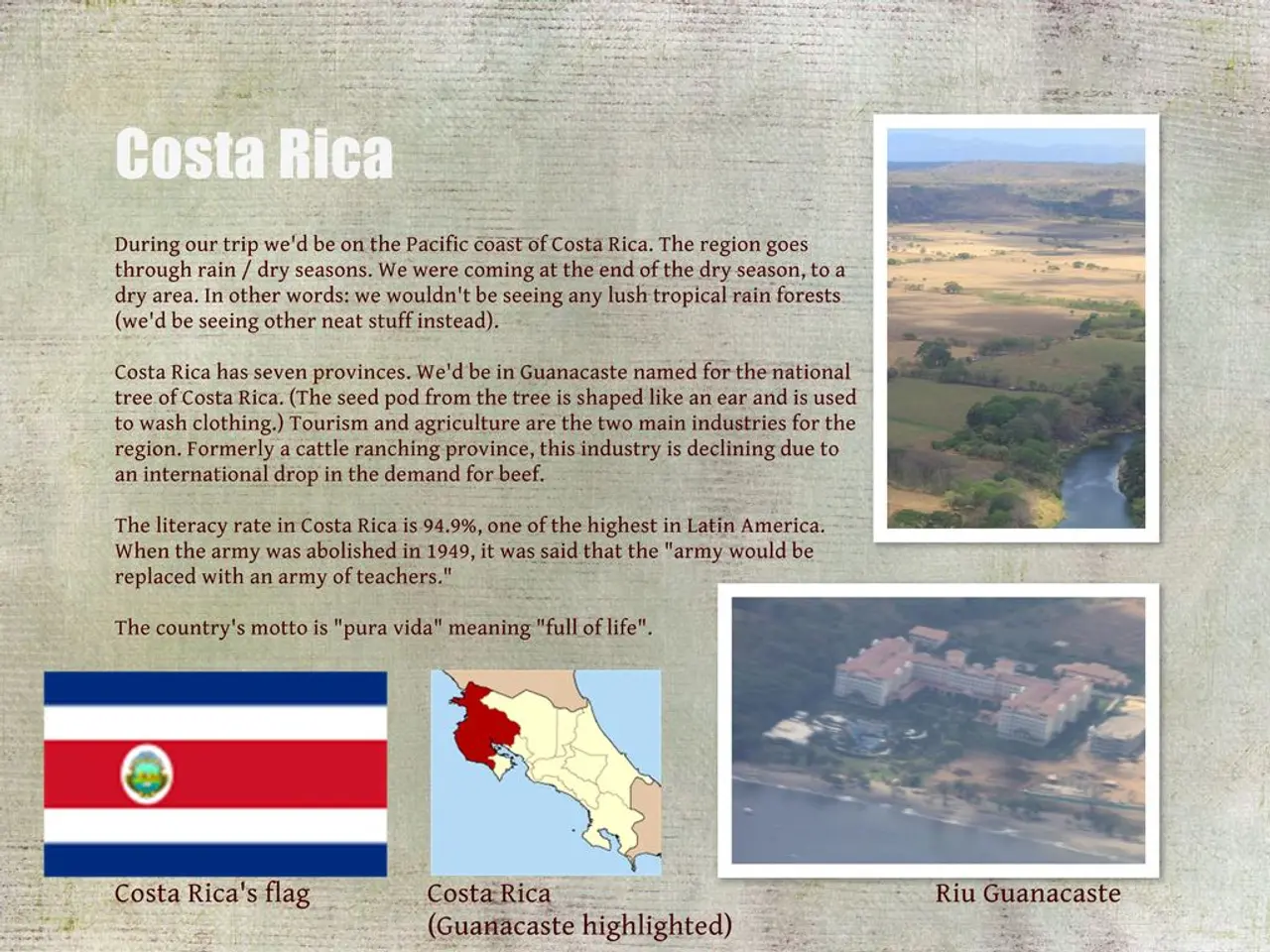Midterm Elections Forecast by James Carville Following Approval of Trump's Significant Legislation
The recently passed legislation, colloquially known as "Trump's big, beautiful bill," has sparked significant debate and controversy due to its implications for Medicaid and tax cuts for the wealthy, with strong partisan divides and widespread critique regarding its impact on vulnerable populations.
### Key Points of the Bill
The bill introduces several changes to Medicaid, including work reporting requirements for certain able-bodied adults without young children, increases in out-of-pocket costs for enrollees, and restrictions on state financing options and payments to healthcare providers. These changes are projected to strip health coverage from about 17 million Americans, deepen poverty, worsen food insecurity, and destabilize the health care system, particularly affecting older adults, people with disabilities, children, and low-income families.
In addition, the bill makes most of Trump’s 2017 tax cuts permanent, which previous independent analyses show predominantly benefit high-income earners. This extension of tax cuts is expected to increase the federal deficit by at least $3 trillion over the next decade. The bill also imposes a one-year ban on state Medicaid payments to Planned Parenthood and some other healthcare nonprofits that provide abortions, invests heavily in immigration enforcement, and cuts funding for various environmental programs.
### Implications
From a public health and social welfare perspective, the bill's Medicaid changes could lead to millions losing coverage, worsening health outcomes, and increasing financial burdens on vulnerable populations. The work requirements and restrictions on immigrant access are likely to reduce Medicaid enrollment significantly, especially affecting marginalized groups. By extending tax cuts mainly benefiting the wealthy while cutting entitlement programs, the legislation is expected to exacerbate income inequality and increase the federal deficit, raising concerns about fiscal sustainability.
The policy shifts reflect a prioritization of tax relief for wealthy Americans and stricter immigration and border controls over maintaining or expanding social safety nets. The bill’s approach to Medicaid and health coverage reverses some recent gains in coverage and healthcare access, potentially destabilizing the broader healthcare system.
James Carville, a longtime Democratic strategist, predicts that President Donald Trump's signed law will lead to a "mass extinction event" for Republicans in Congress. The Congressional Budget Office estimates the law could add $3.3 trillion to the national debt, and food assistance for low-income households is slashed by the law. Medicaid is considered beloved by a large majority of Democrats, independent voters, and Republicans, according to polling from Kaiser Family Foundation.
Rural hospitals are at risk of shutting down due to the law, and Carville predicts Democrats will pick up more than 40 House seats due to the law. Carville calls Trump's law "the most unpopular piece of legislation in history." The HuffPost, which has been providing free journalism for 20 years, continues to seek support to maintain its mission of providing unflinching, fact-based journalism.
[1] Kaiser Family Foundation. (2021). Medicaid Work Requirements: What You Need to Know. Retrieved from https://www.kff.org/medicaid/issue-brief/medicaid-work-requirements-what-you-need-to-know/ [2] Center on Budget and Policy Priorities. (2021). The House-Passed American Health Care Act Would Cause Millions to Lose Health Insurance. Retrieved from https://www.cbpp.org/research/health/the-house-passed-american-health-care-act-would-cause-millions-to-lose-health [3] Congressional Budget Office. (2021). Cost Estimate: H.R. 1868, the Tax Cuts and Jobs Act. Retrieved from https://www.cbo.gov/publication/53534 [4] Natural Resources Defense Council. (2021). Trump's Budget Would Slash Funding for Environmental Programs, Prioritize Polluters Over People. Retrieved from https://www.nrdc.org/experts/sarah-chieffo/trumps-budget-would-slash-funding-environmental-programs-prioritize-polluters-over-people
- The debated policy-and-legislation, often referred to as "Trump's big, beautiful bill," includes changes to Medicaid that, from a public health and social welfare perspective, could lead to millions losing health coverage and financially burden vulnerable populations, such as older adults, people with disabilities, children, and low-income families.
- The bill, as part of its general-news implications, makes most of Trump's 2017 tax cuts permanent, predominantly benefiting high-income earners, and imposes a one-year ban on state Medicaid payments to Planned Parenthood and select healthcare nonprofits that provide abortions, leading to a potential "mass extinction event" for Republicans in Congress, according to Democratic strategist James Carville.








